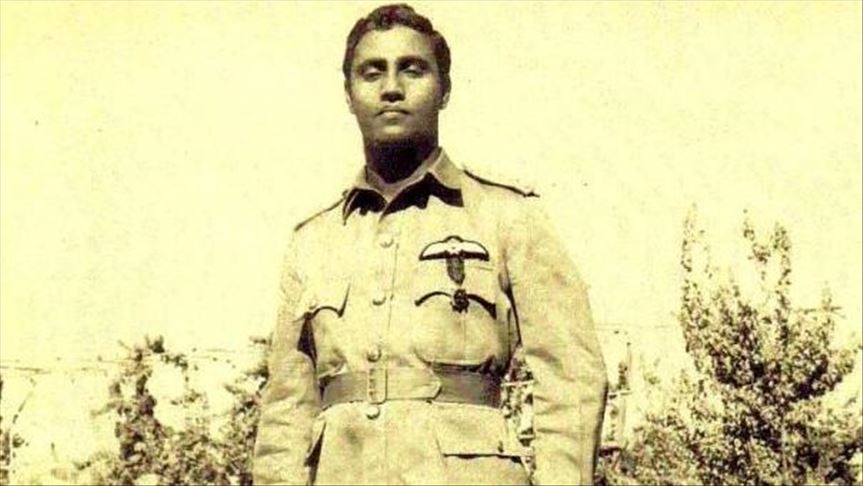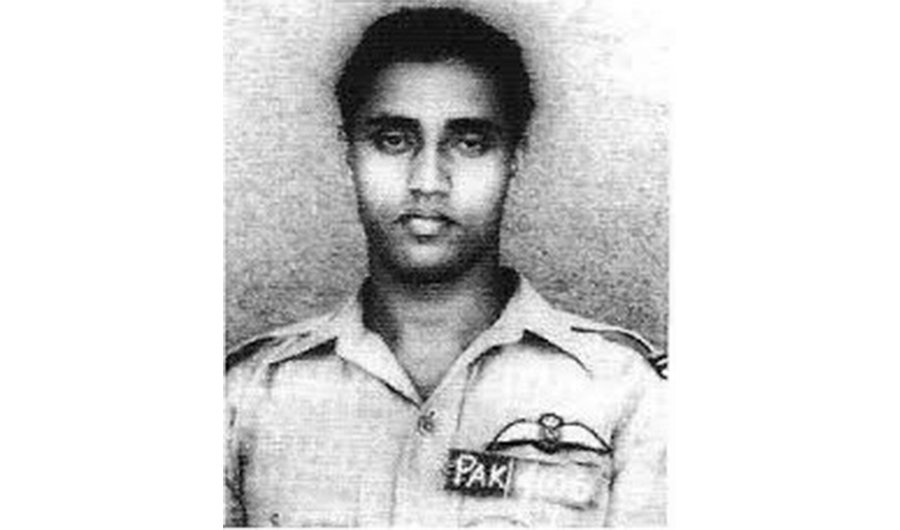ISLAMABAD: The chief of the Pakistan Air Force chief, Mujahid Anwar Khan, on Monday paid tribute to Group Captain (Retd) Saif-ul-Azam who had served in both the Pakistan and Bangladesh air forces during an illustrious career and died in a Dhaka hospital on Sunday.

Group Captain (Retd.) Saif-ul-Azam who served in the air forces of both Pakistan (from 1960 to 1971) and Bangladesh (from 1971 to 1979). (Photo Courtesy: Social Media)
Bangladesh used to be part of Pakistan and was formerly known as East Pakistan, after the end of British colonial rule in 1947. But nationalists led a successful war of independence from what was then West Pakistan in 1971, when East Pakistan became an independent nation called Bangladesh.
“While paying rich tributes to Group Captain (Retd.) Saif-ul-Azam, the air chief acknowledged his heroic deeds during the 1965 Indo-Pak and 1967 Arab-Israel wars,” the Pakistan Air Force (PAF) said in a statement on Monday.

An undated photo of Group Captain (Retd.) Saif-ul-Azam who served in the air forces of both Pakistan (from 1960 to 1971) and Bangladesh (from 1971 to 1979). (Photo courtesy: Pakistan Air Force)
The legendary fighter pilot came to global attention when he shot down three Israeli aircraft during the 1967 Arab-Israel war. He was the only fighter pilot in the world to destroy fighter jets of both India and Israel and who had fought in wars in Jordan and Iraq.
“In recognition of his heroic contributions he was honored with military awards by the governments of Jordan and Iraq,” the statement said, in addition to receiving the “Living Eagle” title from the United States government in 2001.
Born in 1941 in the Pabna District of East Bengal, Azam was commissioned as a fighter pilot in October 1960 and served in the No.17 Squadron at the PAF base in Sargodha during the 1965 war.
“Apart from inflicting heavy damage to Indian forces in the 12 ground-attack missions, Azam also had one IAF (Indian Air Force) aircraft kill to his credit as well,” the statement added.
For his courage and devotion to duty during the 1965 war, Azam was honored with the “Sitara-i-Jura’at” (Star of courage) award by the Pakistan government. He is survived by his wife and their three children.
















